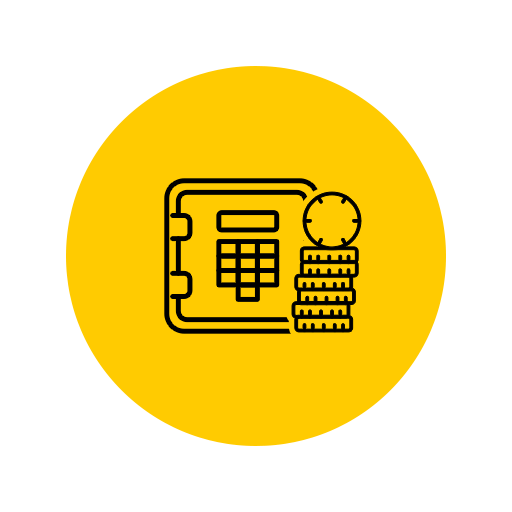Are you looking to open a bank account in the United States but you are a non-resident? This guide will provide you with ways on how to open a personal bank account in the United States.
Gaining access to a bank is a firm place towards financial freedom. It is the safest place to store your money, have the ability to make it grow, and easy access to your money when you need it. For younger individuals, it’s the primary avenue where you can kickstart your financial footprint and credit history.
What are the main conditions to open a U.S. Bank account?
In the United States, federal laws usually govern American bank accounts, but local laws determine the success of a bank account application. Each financial institution will have their own sets of requirements for non-residents or non-US citizens opening accounts.
Since you are likely to apply the bank account in person, it is imperative to check the local bank branch ahead of time as to what you need to submit during the application process.
The majority of banks will ask for all or some combination of the following:
- Government-issued ID, such as green card, work visa, and passport from your home country
- Proof of income source
- Proof of personal address, including utility bill, lease contract, and more.
As most American bank accounts usually send essential documents, such as debit cards via mail, it is crucial that you have a mailing address to open an account.
Do you really need to have a social security number to open a bank account in the United States?
A common myth when applying for a bank account among non-residents is that you need to have a security security number to be successful in this endeavour. In fact, you do not need to have a social security number to successfully open a bank account in the United States.
In the case that you do not have a social security number but would like to proceed with opening a bank account, you will be required to submit extra identification. You can easily obtain a taxpayer identification number as a valid requirement to opening a bank account.
Here are the steps to acquire a taxpayer identification number in the United States:
- Fill out the required W-7 form.
- Review the terms and conditions under the IRS Application Standards for taxpayer identification number.
- Submit your application to your local IRS office.
Once you have submitted the required paperwork and documents, you will then be required to make a minimum deposit to open a bank account. This will ensure that your expected revenues will exceed your chosen bank’s administrative fees, all of which will be utilized to service your account.
While the minimum deposit amount varies by financial institutions, the minimum deposit for most companies range between $50 and $100. On the other hand, full-service brokerage firms seek larger deposits, but that remains an exception and not a general rule.
Types of Personal Bank Accounts for Non-US Residents
As a non-resident, there are two types of bank accounts that are made available to you: a personal and corporate bank account.
Personal Bank Account
You can choose from a checking or savings account. A checking account is optimized for daily financial transactions such as in the case of buying products and services like gas, groceries, and many more. A debit card affords you to process various transactions, including:
- Bills payments
- Account transfers
- ATM withdrawals
- Recurring payments
The savings bank account on the other hand is focused on preparing for the future. It is originally designed for money to kept on your account with the aim of building interest over time.
Since savings accounts offer higher interest rates than checking accounts, they are the ideal place to let your money sit untouched in the long run. Conversely, checking accounts inly build a small interest and designed for daily use. With the right set of documents, a non-resident can open both a checking and savings account in the United States.
Corporate Bank Account
To open a bank account, you must have an established company based in the United States. Unless you have an existing relationship with a renowned international bank, not to mention a large sum of money stored in that account, most American banks will not allow for you to open a bank account in the United States
The United States law recognizes multiple forms of corporate entities, including:
- Sole proprietorship
- Partnership company
- S corporation
- Limited Liability Company (LLC)
Non-US residents can set up a local Limited Liability Company or a trust, a foundation and capitalize on a wide range of associated tax benefits.
Similar to opening a personal bank account, you will be asked to submit the following:
- Government-issued identification
- Proof of address
- Proof of business address
- Articles of incorporation
- Federal Employer Identification Number (EIN)
When opening a corporate account, a minimum deposit amount will be required by your chosen bank.
Choosing a Bank
Major banks such as JP Morgan Chase and TD Ameritrade offer the most accessible bank account opening process for non-US applicants. While majority of American banks prohibit online application for non-residents, there are many fintech firms that are focused on providing innovative solutions for underserved groups.
If you are a non-US resident looking to open an international bank account in the United States. Leveraging our years of expertise in the financial industry and vast global service network, clients can enjoy a smooth and hassle-free experience of opening a bank account in the United States. If you are looking to open a US bank account or an international personal or corporate bank account in foreign jurisdictions, our Damalion experts will be more than happy to discuss your needs. Contact us today to learn more.
This information is not intended to be a substitute for specific individualized tax or legal advice. We suggest that you discuss your specific situation with a qualified tax or legal advisor.






